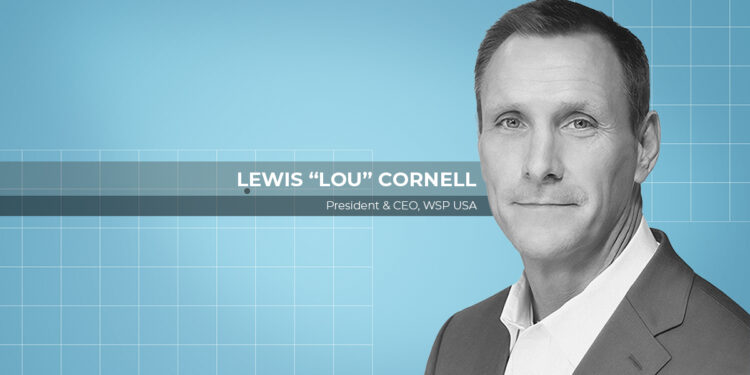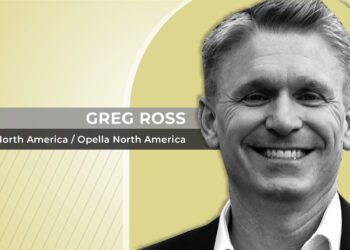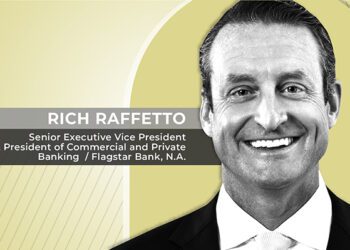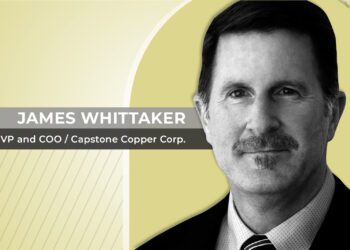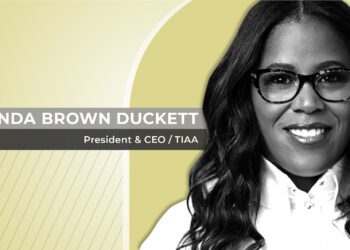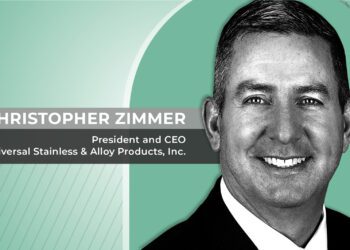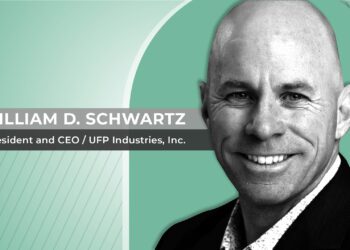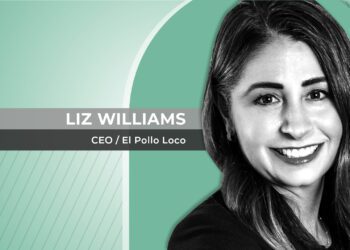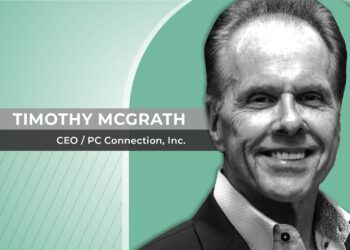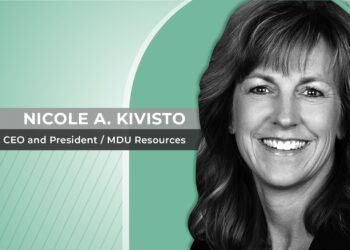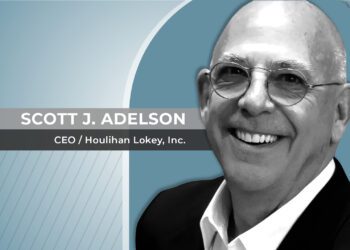The new federal infrastructure bill has WSP USA CEO Lou Cornell looking to the future with optimism, yet he believes that recruiting and retaining the very best talent will be critical to the company’s success.
By Fred Young
Click here to read the full editorial in our Feb / March issue of CEO North America


- CA$8.8 billion Revenue (2020)
- 47,000 (2020) Employees
- Montreal, CAN HQ
- TSE:WSP Stock
When WSP USA CEO Lewis “Lou” Cornell was a young engineer just out of the University of Pittsburgh, he got a break that would mark his leadership style out into the future.
“In 1996, I was a young engineer a few years out of school and had a unique opportunity to create a new business in the mid-Atlantic region. This allowed me to get involved in all aspects of the business, whether it was sales, marketing, business development, project management, accounting, or finance,” said Cornell recently in a meeting of business leaders. “We were very successful; we grew it to a couple hundred people in a few years.”
Growth and a cross-business understanding of companies have accompanied him throughout his career. In October 2019, Cornell became President and CEO of WSP USA, the American branch of the storied engineering design multinational. The engineering conglomerate was just poised to undertake a spurt of growth in the 2019 to 2021 period with 14 acquisitions bringing the company’s headcount to 55,000 globally. The acquisition of global consulting firm Golder alone increased the global workforce by 7,000.
REBUILDING AMERICA
WPS USA’s future growth now depends on a milepost in the worldwide turn toward climate change, resilience and sustainability—the $1.2 trillion U.S. infrastructure bill signed into law by President Biden in November. A $105 billion package to modernize public transit and the country’s rail system seems tailor-made for WSP, which has been recognized by Engineering News-Record as the world’s number one firm in transport design. WSP also has its eye on $55 billion to upgrade the country’s water infrastructure.
“With the infrastructure bill that has now passed, that is all in our wheelhouse,” Cornell told CEO North America in an exclusive interview. “If we look at the different categories of funding, either brand new funding or the expansion of existing funding, for highways, bridges, transit, rail, or aviation, we are set up to be very successful for our clients with our focus on climate resilience, sustainability, renewable energy, and water and transportation improvements.”
Growth is a big part of the WSP story of the past three years, with several major acquisitions and positive year-over-year revenue growth between 2019 and 2020.
“We are maintaining a balanced approach between organic and inorganic growth,” said Cornell. “We have seen strong organic growth in the last earnings report. Now we have the infrastructure law, as well as the resurgence of the commercial market, boding well for growth the next five years. We will focus on the geography of market sector expansion, as work in the private sector picks up. We will also go on to more complex work in healthcare, higher education, and data centers, as well as focusing on renewable energy and water expansion.”
In 2020, 35% of the company’s $5.3 billion net revenues came from its Americas business, covering the USA and Latin America.
KEY ACQUISITIONS
“We now have a comprehensive offering of environmental services due to recent acquisitions, such as Golder Associates and Earth Consulting Group in Florida, which is focused on ecology and environment,” Cornell highlighted. “WSP is the only company in the U.S. at this moment that can provide the full suite of environmental services, including complete lifecycle solutions in sustainability, climate adaptation, as well as climate mitigation and response.”
The company’s shift toward environmental business opportunities was recognized with the World Finance Sustainability Award in 2021. WSP became the first professional services firm to secure sustainability-linked terms for its syndicated credit facility, meaning its borrowing costs will be reduced or increased according to its performance on sustainability targets.
“In 2020, we created a national business line called Climate, Resilience and Sustainability,” Cornell said. “We took our wide-ranging capabilities in sustainability, environmental services and climate mitigation and consolidated them to maximize our impact in solving this challenge.”


BREAKING DOWN SILOS
New acquisitions and a strong backlog means the company has outgrown its internal silos. One of Cornell’s most important decisions since taking the helm of WSP USA has been to move away from a structure built along the company’s national business lines to a matrixed organization that creates flexibility and the ability to push best-in-class technical expertise across all geographies in the U.S.
“Before COVID-19, I spent eight months travelling, talking to employees and clients,” Cornell told CEO North America. “Our clients saw solid opportunities for growth in the environmental sector, as well as the federal government business. We saw an opportunity in developing a more compelling organizational structure to deliver cross-sector services to our clients in all regions of the country.
“Clients had told us about our ability to sell in those local markets. But we were structured on a national business line model at the time. In January 2021, we switched to a hybrid organizational structure.”
In the new structure, there is a project management leadership team set up in regional markets with an overlaid national market sector concentrating technical expertise, making it available across the nation.
“We did it during the pandemic, and it was a struggle,” recalled Cornell. “This meant the regional leads needed to educate themselves to know which services we sell outside of their area of expertise. But now we are uniquely positioned to sell cross-sector services in all these different geographies.”
RECRUITING AND RETAINING TALENT
With growth seemingly all but inevitable given the injection of federal funds, recruiting and retaining talent in the current tight labor market will be key to WSP USA’s future success.
“First and foremost, a critical success measure is going to be retention of key people,” Cornell said. “We are doing our best to strengthen our culture of collaboration and creativity, a culture that brings diverse perspectives and backgrounds to bear to solve the big challenges of the day. We believe our unique culture will help us attract the best talent to deliver programs larger than what we have seen in the last three to four decades, especially given this new infrastructure bill and an economic rebound.”
“We have a company culture built on empowering and supporting each other,” he elaborated, on what makes WSP USA tick. “I think that sets us apart. If we take care of our people and take care of the culture, our people in turn will take care of their clients.”


Cornell’s interests range wider than just his company’s performance. He is a trustee for the Committee for Economic Development in Washington, D.C. and serves on the transportation, education and healthcare committees, affording him extensive contact with congress members and the Biden administration. He is also advising the city of Los Angeles on preparations to host the 2028 Summer Olympics, particularly regarding the logistics and project management of the event.
“This is going to be a spread-out event, which is different than we have seen in Olympic villages from the past,” Cornell told a meeting of businessmen in Orange County, Calif., where he lives. “It is really an opportunity to showcase everything we can do across Southern California. The focus on logistics, the transportation element, the airport, the metro lines, the highway corridors, and the logistics of housing all the events throughout the region, will be absolutely critical. We have been playing a wide variety of roles with these preparations.”
But the true competition for the wide-ranging engineer will be for an ever-greater part of the enormous infrastructural investments that await the U.S. He will need to find and retain people like his younger self—sharp, versatile engineers who can play on all surfaces and expand regional markets. That is where the gold medal for WSP USA and Lou Cornell will lie.

